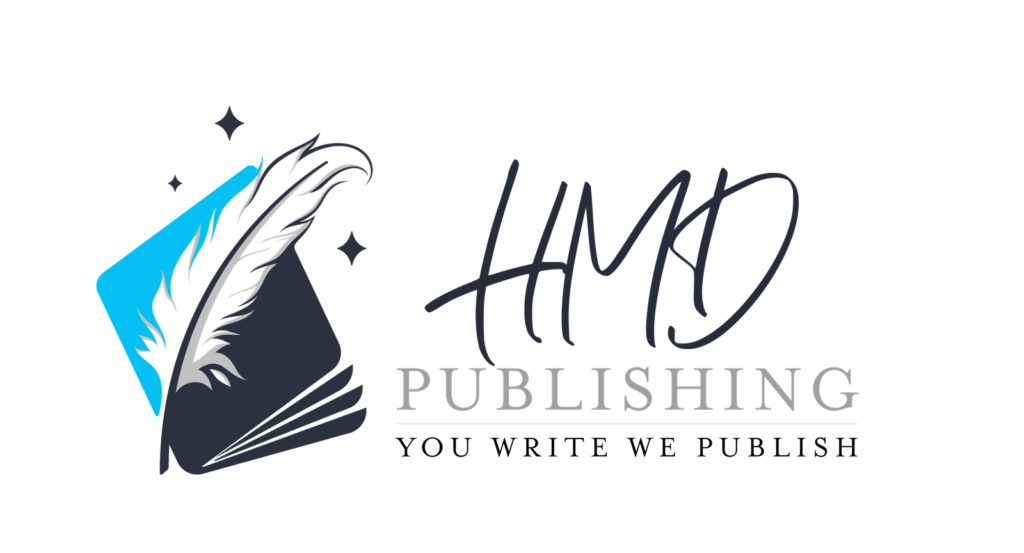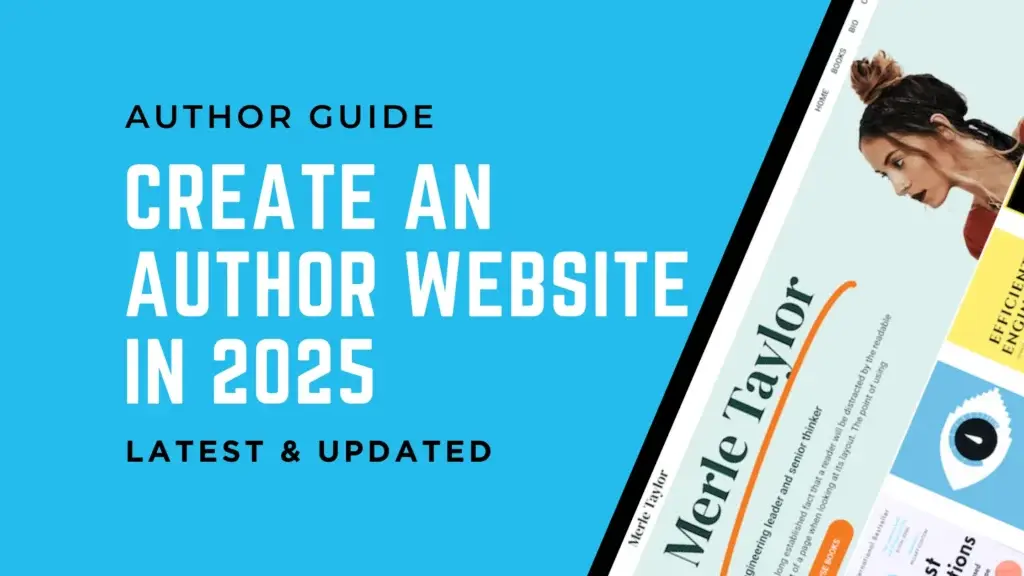What’s the one thing bestselling authors have that most beginners overlook? A website that works just as hard as their books do. In today’s fast-moving digital world, an author website isn’t just a nice-to-have; it’s a core part of your success. With nearly 88% of authors now running their own sites, and readers spending close to two minutes exploring them, your online presence is often your first (and maybe only) shot at making an impression. But it’s not just about looking polished, it’s about building a platform that sells your books, grows your audience, and builds trust with every click. In this guide, you’ll learn exactly how to create an author website that does just that, from strategy to structure to smart design choices.
Why Your Author Website Matters

Think of your author website as more than just a place to list your books; it’s your digital home base. Unlike social media platforms, where algorithms change and visibility isn’t guaranteed, your website gives you full control over how readers experience your brand. You own it, which means you’re not building your presence on “rented land.” However, a modern author site must do more than look good. It should build trust with visitors, grow your email list, support direct booking sales, and serve as the central hub for all your marketing efforts. When done right, it positions you as the top result when someone searches your name, putting you ahead of Amazon or other retailers and giving you direct, uninterrupted access to your audience. In short, it’s your most powerful tool for turning casual browsers into loyal readers.
How Amazon Ads Can Boost Your Book Sales
Must-have Elements for an Author Website
Your website’s visual design is the first impression readers get, and it should align seamlessly with your book covers and genre. A clean, professional layout instantly builds trust and credibility, while a cluttered or outdated design can turn visitors away before they even scroll. Match your design tone to reader expectations. A romance author’s site will look different from a sci-fi writer’s, and that’s the point.
Strategic Content Organization
Every author’s website needs a clear structure that leads visitors toward buying their books.
- Homepage: This is your storefront. Highlight your latest release prominently, featuring eye-catching visuals, a bold headline, and easy-to-find purchase links.
- About Page: Share a warm, professional bio paired with a good headshot. Readers want to know who you are, not just what you write.
- Books Page: Feature all your titles here with polished cover images, persuasive descriptions, glowing reviews, and links to every platform where your book is available.
- Blog: A regularly updated blog boosts your site’s SEO and shows readers (and search engines) that you’re active and engaged.
Multiple Revenue Streams
Why send all your traffic to Amazon? Consider adding direct sales through tools like Sellfy, Payhip, or a simple e-commerce plugin. Selling directly lets you keep 100% of the profits and build deeper reader relationships—no middleman involved.
Email Marketing Integration: Your Most Powerful Tool
An email list is gold. It gives you a direct line to readers who care about your work. Add visible, well-placed signup forms across your site and offer something irresistible, like a free chapter, early access to new releases, or bonus content.
Mobile Optimization: Non-Negotiable in 2025
With over 60% of all web traffic coming from mobile devices, your site must look and work great on smartphones and tablets. A responsive design ensures your content scales properly, keeps text readable, and makes those “Buy Now” buttons easy to tap—no pinching or zooming required.
A Complete Author’s Guide to Book Editing Costs
Search Engine Optimization for Visibility
SEO plays a critical role in helping potential readers discover your author website, especially when they’re searching for books in your genre or looking up your name on Google or other search engines. The key is to create high-quality content that naturally includes relevant keywords without forcing them in. Instead of stuffing your pages with terms, focus on writing for real people while keeping search intent in mind. A strong SEO strategy should prioritize specific search phrases like your author name, book titles, and genre-related terms readers are already using.
To build a solid foundation, start with the core elements of SEO:
- Use descriptive page titles and meta descriptions that clearly tell readers (and Google) what each page is about.
- Publish regular blog content that speaks to your audience’s interests—think behind-the-scenes writing updates, genre trends, or book recommendations.
- Internally link related blog posts and pages to help both visitors and search engines navigate your site with ease.
- Don’t forget to optimize your images with descriptive alt text, and make sure your site structure is clean and easy to crawl.
- These small efforts compound over time and make a big difference in your discoverability.
Social Media Integration Without Overwhelm
You don’t need to be everywhere to make an impact. Instead of spreading yourself thin across every social platform, choose just two or three that best match where your readers actually spend time. Once selected, integrate those platforms into your website with intention. Embed live social media feeds where appropriate, add easy-to-use sharing buttons to your content, and clearly link to your social profiles—preferably in your header, footer, or about page. This creates a smooth connection between your website and your social presence, allowing visitors to follow and engage without friction.
Content Management for Long-Term Success
Managing your website should never feel like a full-time job. That’s why choosing the right content management system (CMS) is essential for long-term success. WordPress remains the go-to for authors who want full control and customization, but platforms like Squarespace and Wix offer simple drag-and-drop tools that are ideal if you’re less tech-savvy. No matter what you use, make sure it allows you to easily update content on your own. Regularly refreshing your site with new blog posts, event updates, or book announcements signals to both search engines and readers that your platform is active and worth returning to.
Conversion Optimization: Turning Visitors into Buyers
Every element on your website should guide visitors toward specific actions—buying your books, joining your email list, or following you on social media. Use clear calls-to-action, prominent buttons, and strategic placement of purchase links.
Test different approaches to see what works best for your audience. A/B test different headlines, button colors, and page layouts to optimize your conversion rates. Small changes can significantly impact your results.
Ready to Build an Author Website That Actually Sells?
Let HMD Publishing design it for you, starting with a free consultation!




